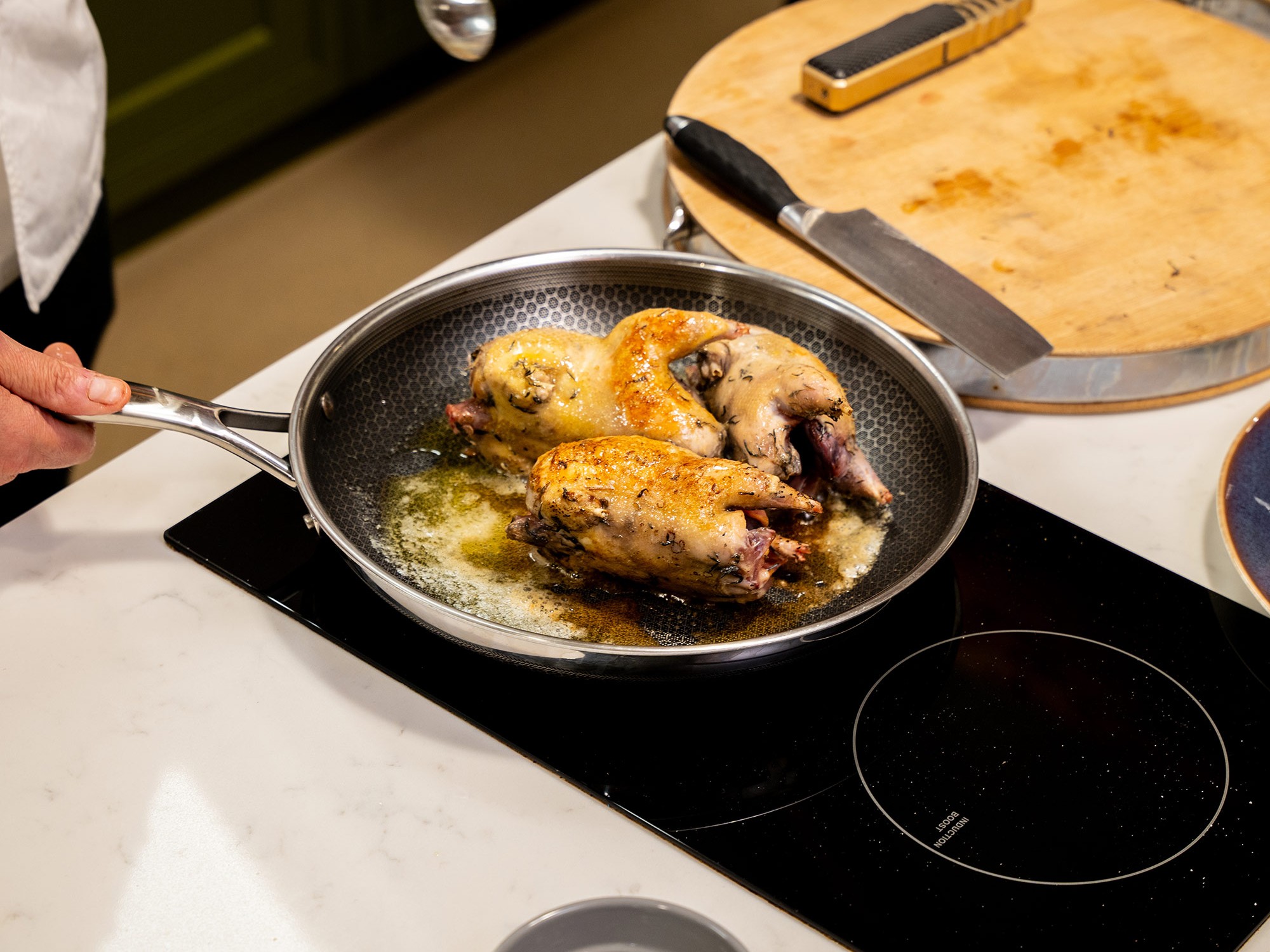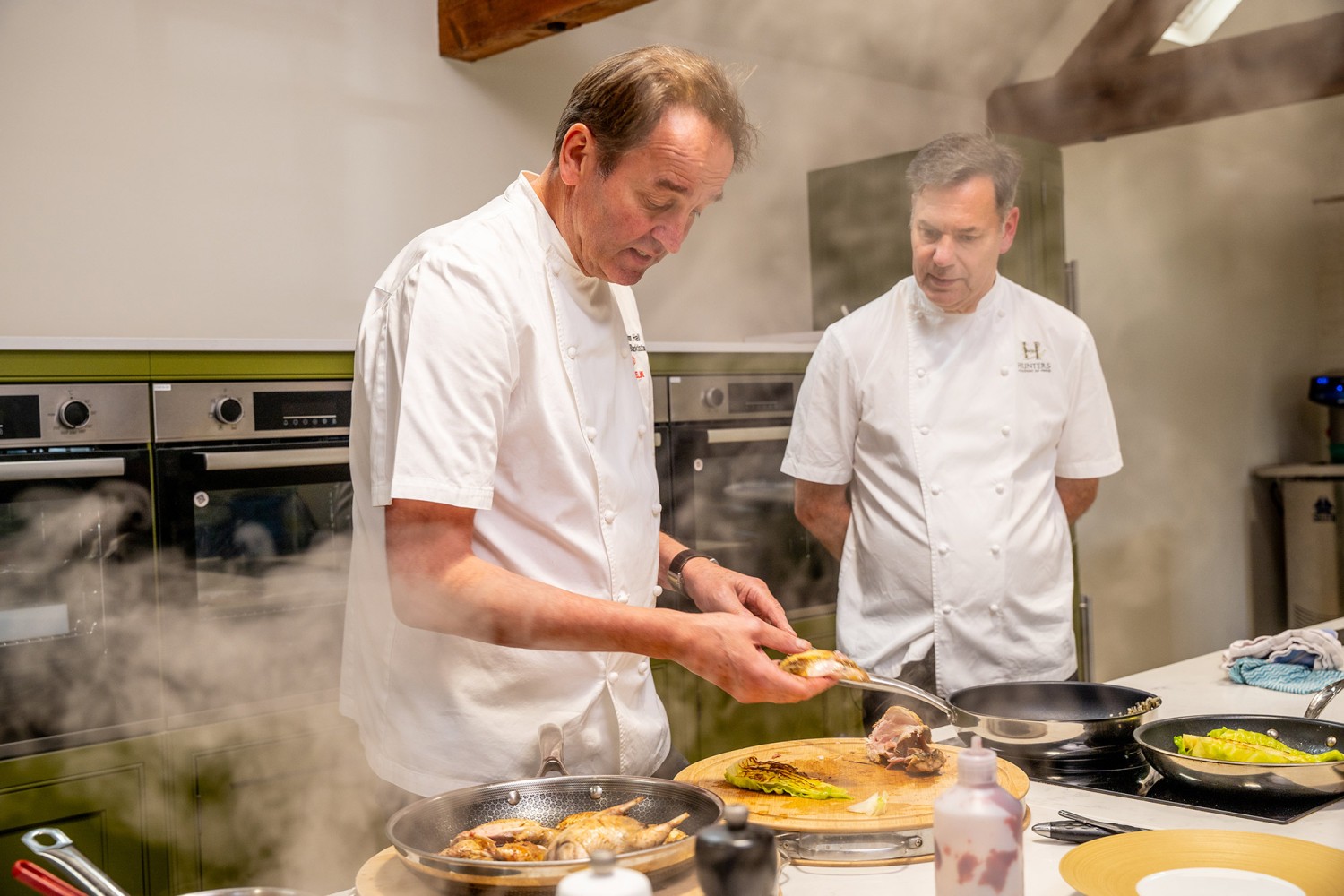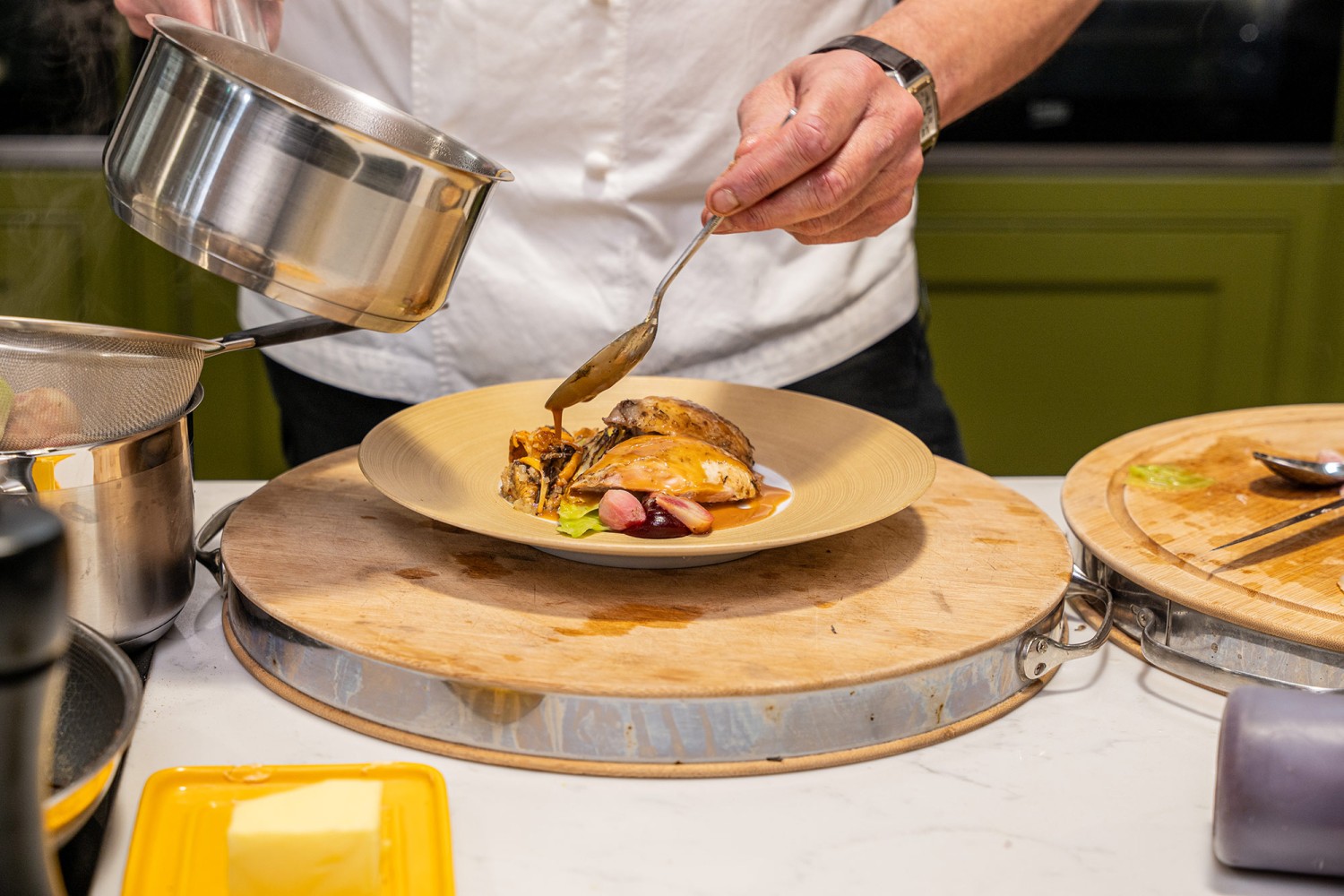
How to cook Game

With Norfolk’s plentiful game season in full swing and warming flavours emerging to brighten chilly days, we uncover the value of this special delicacy and the art of cooking it to perfection
As autumn paints the Norfolk countryside in hues of gold and crimson, the arrival of peak game season marks a time to celebrate cherished traditions, flavourful delights and culinary innovation. From the fields to the forests, foragers, chefs and food lovers eagerly anticipate this unique period when our region’s abundant landscapes flourish with exceptional wild fare, renowned for its quality and potential.
“Autumn is my favourite time of year when it comes to what’s on my plate or cooking in my oven. It blends late summer harvests with the onset of hearty root vegetables, robust casseroles and stews, and an array of outstanding local game,” says acclaimed chef and chocolatier Gary Hunter, who runs an inspiring cookery school in the heart of Norfolk. “Generally defined as wild animals and birds hunted for food, game boasts many benefits when it comes to quality, nutrition and taste. It’s lean, flavoursome, sustainable and definitely free-ranging. We’re lucky to reside in a county famed for its fantastic game heritage.”
Norfolk boasts diverse habitats including woodlands, wetlands, heathlands, and fertile fields that support a wide range of game species, from birds like partridge, pheasant, wild duck, and grouse to mammals such as hare, rabbit, wild boar, and six types of deer. Our remarkable county is also renowned for its rich hunting history, with traditions that date back centuries. Numerous local estates and manors have hosted grand shooting parties for generations and continue to uphold these ancient techniques through organised shoots today. This treasured heritage is reflected in the well-managed game populations and the high standards of modern hunting practices maintained throughout the region.
The game season traditionally begins on August 12th, known as ‘The Glorious Twelfth’, which marks the start of the red grouse shooting period. Typically running until February 1st, it still serves as a significant cultural occasion that unites communities and excites culinary enthusiasts keen to explore the rich flavours and versatility of game meats, all while promoting high-quality local produce.
“Game is a gift that should be celebrated and savoured, especially in a county prized for its wild fare like Norfolk,” says Galton Blackiston, proprietor of the acclaimed Michelin Star hotel and restaurant, Morston Hall. “With its plentiful countryside estates, dedicated local butchers and superb dining out scene, you don’t have to travel far to make the most of it.”
Game stands out for its distinct taste, superb nutritional value and great culinary potential, although many shy away from cooking it for fear of making mistakes.
“Preparing game at home may seem like a daunting task, but it doesn’t have to be. The key is understanding the
meat and handling it with respect,” says Galton. “It’s incredibly versatile and offers flavours that farmed animals simply can’t match. By employing the right techniques and seeing it as an opportunity rather than a challenge, you’ll discover that creating delicious dishes with game is easier than you might think.”

